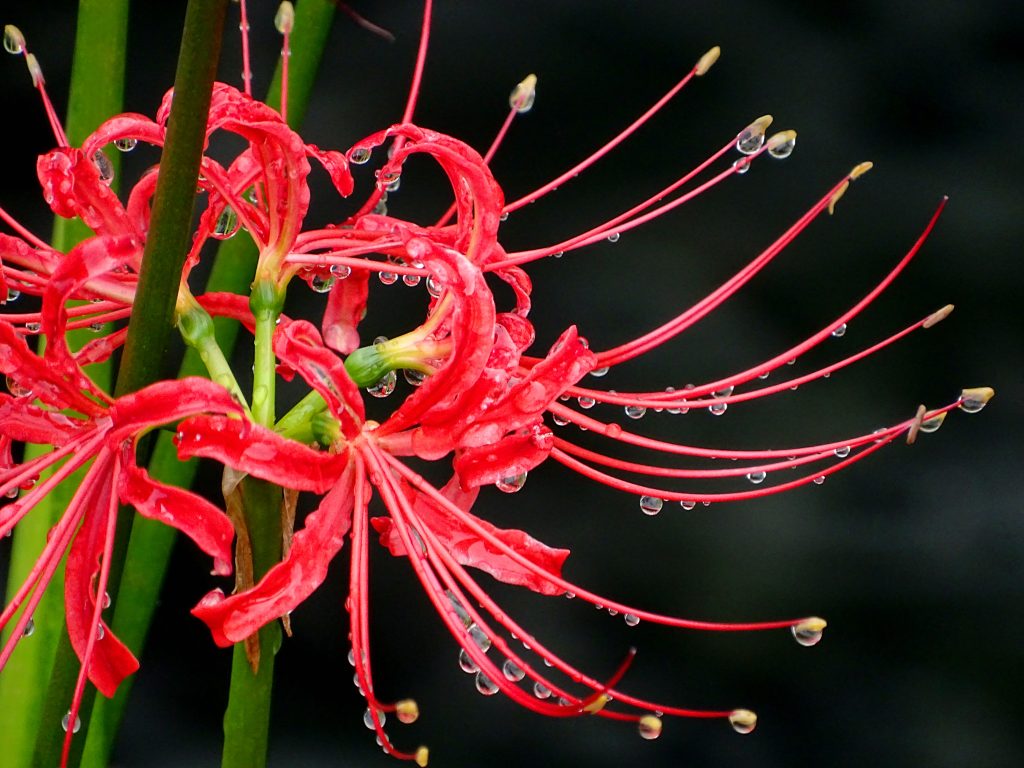With new headlines out about how cannabis might be a weapon against covid-19, it seems our pharma loving world has managed to forget what has already been learned. When it comes to plant medicine and coronaviruses, we already know a good bit from previous research. The better question isn’t whether something like cannabis can help, but why isn’t anything already learned, being used today?
Plant medicine has already shown to be a useful tool against coronaviruses. If only that information was made more accessible to the public! Unfortunately it has not. We’ve got you covered in this growing industry, so make sure to check out The THC Weekly Newsletter for all the most pertinent stories related to cannabis, and exclusive deals on flowers, vapes, edibles, and many other products! We also offer big savings on cannabinoid compounds like HHC-O, Delta 8, Delta 9 THC, Delta-10 THC, THCO, THCV, THCP & HHC . Find them in our “Best-of” lists, and enjoy!
What is plant medicine
Plant medicine simply refers to medical traditions that use plant compounds as the main source of medication given. Plant medicine generally fits under the term ‘Eastern medicine’ which denotes pretty much anything outside of standard pharma medicine (or, Western medicine) of today. Whereas standard pharma medicine is a newer invention, along with the chemicals it uses to medicate, plant medicine traditions go back sometimes thousands of years.
While different cultures across different time periods have had their own medical traditions, and while some of these traditions have intricate written records, most of the time there was no communications across places, and through time periods, meaning the different traditions were not communicating with each other.
This is an interesting point because much of the time, the same conclusions were come to regarding how a plant could be used, across these distant locations and periods in time. Which speaks volumes to their efficacy, and the known attributes of medical properties, or dangers that exist for each one. It would be very hard otherwise, without communication, for so many different traditions to establish the same opinion on specific plants, throughout so many different parts of history.
Though hundreds of traditions, or even thousands, might have existed through history, two of the bigger, more well known ones are Ayurvedic medicine out of India, and Traditional Chinese Medicine from China. Some traditions have been nullified by time, or the death of all participants, but these two traditions are still used widely and practiced by people all over the world.

Plants are great at fighting so many illnesses because the mechanisms used to help humans, are the same ones the plants use to protect themselves from viruses, bacteria, fungi, and parasites. These are natural plant defenses that allow the plants to fight off microbial intruders, and they have shown throughout millennia of time to be useful to humans as well.
What is covid?
The problem with a subject like this is that it gets out of hand, especially when there are commercial interests at play. And like it or not, whatever side of this you fall on, there are indeed commercial interests at play. This part is undeniable, as pharmaceutical companies are at the helm of medication production. How much you assume controlling bodies always want the best for you, is up to each individual to decide for themselves.
Having said this, covid-19 or ‘severe acute respiratory syndrome coronavirus 2’, or SARS-CoV-2, is a virus from the Coronaviridae family, under the sub-heading of Orthocoronavirinae. There are at least 45 different species within this category of viruses as of 2020, including about 15% of all common colds, making it slightly less ‘novel’ than headlines would indicate. These viruses have a range in how destructive they are, with common colds being generally thought of as non-deadly, versus SARS, which was reported as having approximately an 11% death rate.
How long have we known about them? The name ‘coronavirus’ was established in 1968 when June Almeida and David Tyrrell started studying coronaviruses in humans that year. The name was officially instituted in 1971, however there is a history of coronavirus cases going back to the 1920’s.
How deadly is it for real? Well, that seems like a point of much debate, even within the medical community. If you believe every headline, then we’re all doomed to die from it. If you look around at life, it should be logically clear that this is nothing like past super detrimental pandemics, with what seems like a death rate within range for yearly deaths, or at the least, nothing to stop the world for. And that’s going by death statistics, as well as the lack of flu testing that makes it incredibly difficult on a legal level to prove these deaths are corona-related and not flu-related.
Plant medicine and coronaviruses – what we already know
While headlines now blare that cannabis can be used for covid-19, the question arises of what happened to the previously done studies specifically on coronaviruses, that already point to several plant compounds as being effective for fighting them? Could it be that it was never cared about, since those plant compounds won’t help sell vaccines? It should be remembered that not only will they not help sell vaccines, but public knowledge of these compounds could stymie pharmaceutical vaccine sales altogether.
In 2005, this study was done: Identification of natural compounds with antiviral activities against SARS-associated coronavirus, during a separate outbreak of a coronavirus. The study investigators used more than 200 plant extracts from Traditional Chinese Medicine in the study to test for antiviral properties that could be used against that form of the virus at the time, as well as all other severe acute respiratory syndrome-associated coronavirus infections.
Four plants in particular were found to be particularly good at dealing with these viruses at a 50% concentration. The most potent was found to be a plant called Lycoris radiata. Because of its strength, this compounds was looked into further to figure out exactly which part of it was being useful against the viruses. Through fractionation, purification, and CPE/MTS assays, the active component was found to be a compound called lycorine.

The four plants that showed a useful response against the viruses, include: A. annua (Sweet wormwood), L. radiata (Red spider lily), P. lingua, and L. aggregata. The study authors sum it up by saying:
“In conclusion, the compounds extracted from A. annua, L. radiata, P. lingua, and L. aggregata have been identified to show antiviral activity against SARS-CoV in Vero cell-based CPE/MTS screening. Further structure and activity study has determined that lycorine is an active component in the alkaloid portion of the herbal plant L. radiata. The results from our study provide strong support for the usage of these herbs to treat SARS-CoV infectious diseases. Our results also demonstrated that lycorine is a good candidate for the development of new antiviral medicine.”
Still more that we know on plant medicine and coronaviruses
That study wasn’t even the first to investigate the topic, and cited other studies related to how plant compounds can fight coronaviruses. In 2003, this study came out: Glycyrrhizin, an active component of liquorice roots, and replication of SARS-associated coronavirus, because of yet another coronavirus outbreak. The study investigated a few plant compounds like ribavirin, 6-azauridine, pyrazofurin, mycophenolic acid, and glycyrrhizin, against two coronavirus isolates: FFM-1 and FFM-2.
According to researchers, “glycyrrhizin was the most active in inhibiting replication of the SARS-associated virus. Our findings suggest that glycyrrhizin should be assessed for treatment of SARS.” Yet, we never heard about any of this again…
Nor do many people know about this study from 2003, Treatment of SARS with human interferons. Interferons are signaling proteins that are released by a host cell when it gets invaded by a virus. These signals are meant to warn neighboring cells, and this allows those neighboring cells to increase their anti-viral defenses. They get their name from the ability to interfere with viruses. There are more than 20 interferons that have been discovered in humans and other animals.
The study investigators “assessed the antiviral potential of recombinant interferons against two clinical isolates of SARS-CoV–FFM-1”. Their findings concluded that, “Interferon beta could be useful alone or in combination with other antiviral drugs for the treatment of SARS.” This doesn’t have to do with plant medicine, so much as finding something within our own bodies that can be used to better fight things like coronaviruses.
Why isn’t plant medicine used more?
This can be a very polarizing question, and its not one for which there is a hard, fast answer. But that doesn’t mean there isn’t plenty of information that can be analyzed. For anyone paying attention, Eastern medicine and Western medicine can often run counter, which is itself, counter to the idea that so many medical traditions through time have been in agreement, even without having contact.
Another thing to understand is that Western medicine is very much corporate medicine, or medicine where the outputs are entirely run by pharmaceutical companies, which are also known for taking large amounts of money from the government (and this is true nearly anywhere that large pharma companies exist). Eastern medicine, on the other hand, operates more like mom-and-pop stores, and is not known for bringing in the massive amounts of money as pharma companies. Eastern medicine also doesn’t mandate medication, or work directly with governments.

If you’re wondering why pharma companies don’t just use plants if they’ve shown to be so useful, its best to keep in mind that they literally can’t. Plant compounds are not legal to patent, simple as that! So while pharma companies quite often base their medicines on the structures of these well-working plant compounds, they don’t make that clear to the masses, or encourage the masses to just use the plant. Instead, they talk down the very plant medicine they themselves depend on, and sell synthetic versions, often with dangerous added chemicals, creating dangerous medications.
One thing to know about the growing medical cannabis industry, is that it represents the first big entrant of natural medicine into Western medicine. Whether consumers actually put it together or not is one thing, but that the use of cannabis indicates natural medicine, is not deniable, meaning even as big pharma and today’s world of Western medicine continually talk down Eastern medicine, the biggest trend of today is to use it!
Conclusion
Though the media often makes it sound like it, we didn’t enter this covid pandemic without information. In fact, plenty of it exists. When it comes to plant medicine and coronaviruses, this is not a new subject, which makes it head-scratching and frustrating when such useful information gets suppressed so that the masses never know that better options than their pharmaceutically offered one, actually do exist.
Hello readers! Welcome to CBDtesters.co, the internet’s best one-stop-shop for the most thought-provoking and relevant cannabis and psychedelics-related news of today. Stop by regularly to stay aware of the constantly-moving landscape of legal drugs and industrial hemp, and subscribe to The THC Weekly Newsletter, so you never have to worry about missing a story.
Disclaimer: Hi, I’m a researcher and writer. I’m not a doctor, lawyer, or businessperson. All information in my articles is sourced and referenced, and all opinions stated are mine. I am not giving anyone advice, and though I am more than happy to discuss topics, should someone have a further question or concern, they should seek guidance from a relevant professional.








